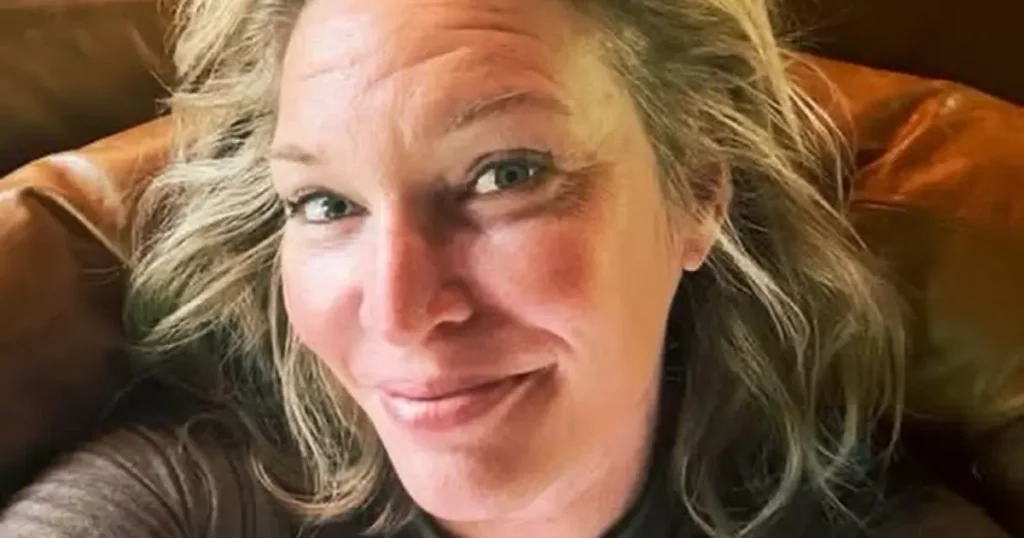Navigating Family Rebuilding: Jen Hatmaker’s Journey Through Divorce
HGTV star Jen Hatmaker has recently opened up about the profound impact her divorce from Brandon Hatmaker has had on their five children. On “The Jamie Kern Lima Show” podcast, Jen shared her heartache watching her children process their parents’ separation after 26 years of marriage. “Having to watch my kids suffer and grieve that loss, in some ways, I’ll never get over for them,” she confessed with raw emotion. While proud of her children’s resilience and growth into “brilliant young adults,” she acknowledges that the divorce fundamentally altered their family narrative. This vulnerability comes as Jen promotes her new memoir “Awake,” where she describes the devastating moment in July 2020 when she discovered Brandon’s infidelity—waking to hear him whispering on the phone to another woman in the early morning hours, followed by his departure from their home the next day.
The aftermath of the separation left Jen in the challenging position of supporting their children largely on her own. “We don’t share custody, and we never have, so it was just them and me,” Jen revealed, reflecting on that difficult first year when they were “just trying to keep our heads above water.” She expresses immense pride in how hard her children worked through their emotions while maintaining honesty throughout their healing process. This period tested not only Jen’s resilience but demonstrated the strength of the parent-child bonds she had cultivated. The family faced the painful reality that the principles of integrity and faithfulness they had been raised with had been compromised by someone they deeply trusted, creating a dissonance between their taught values and lived experience.
Brandon Hatmaker has since responded to Jen’s public account through a statement on Substack, calling his affair “the lowest moment of my life” and acknowledging the pain and humiliation he brought to his loved ones. He described the affair as “the culmination of a three-year personal spiral in which I had lost my anchor, felt no hope and was the loneliest I’ve ever been in my life.” However, Brandon contested Jen’s portrayal of the parenting situation, stating, “It couldn’t be further from the truth.” He clarified that at the time of their divorce, three of their children were already adults and two were teenagers. While accepting that Jen “was certainly the sole parent who had to carry them emotionally through the trauma of my affair,” Brandon maintained that he “was always available, was constantly engaged and always supported them… and still do.”
The reality of how their separation unfolded presented unique challenges for their children, regardless of their ages. As Jen poignantly expressed, “There’s no smoothing over a story for teenagers and young adults when a dad goes to bed on a normal night and is gone the next morning. You don’t get to polish that up.” This abrupt transition demanded honesty rather than sugarcoating, as their perceptive children deserved transparency during such a pivotal family moment. The sudden nature of Brandon’s departure created a narrative that couldn’t be softened or reframed, requiring direct conversations with their children who were old enough to understand the complexities of adult relationships. Jen emphasized that her children’s intelligence and perception meant they could see through any attempts to minimize what had happened.
Looking back on their relationship, Jen acknowledged that there were warning signs of trouble that weren’t limited to her perception alone. “When I tell you there were signs, I’m not the only one who saw those,” she shared, adding with evident sadness, “Kids are not dumb. It’s one of the hardest parts of the story for me, for sure.” This recognition speaks to the intuitive understanding children often have of their parents’ relationship dynamics, even when adults attempt to shield them from difficulties. Both parents have since moved forward with new relationships—Brandon is now married to Tina Hatmaker, while Jen has found companionship with boyfriend Tyler Merritt—yet the ripple effects of their separation continue to influence their family’s emotional landscape.
The Hatmakers’ story resonates with countless families navigating the aftermath of divorce, highlighting how even when children are older or grown, parental separation still profoundly impacts their sense of security and understanding of relationships. Despite the pain and challenges, Jen’s narrative ultimately showcases resilience—both her own and that of her children. Their journey reflects the messy reality that families don’t always follow the idealized scripts we hope for them, but with honesty, support, and time, healing becomes possible. As both parents continue building their separate lives, their shared commitment to their children’s wellbeing, albeit approached differently, suggests that family bonds can evolve and strengthen even after significant fractures. Jen’s willingness to share her experience publicly not only processes her own journey but potentially offers comfort to others weathering similar storms, reminding them that rebuilding after heartbreak, while difficult, creates space for new beginnings and unexpected growth.


